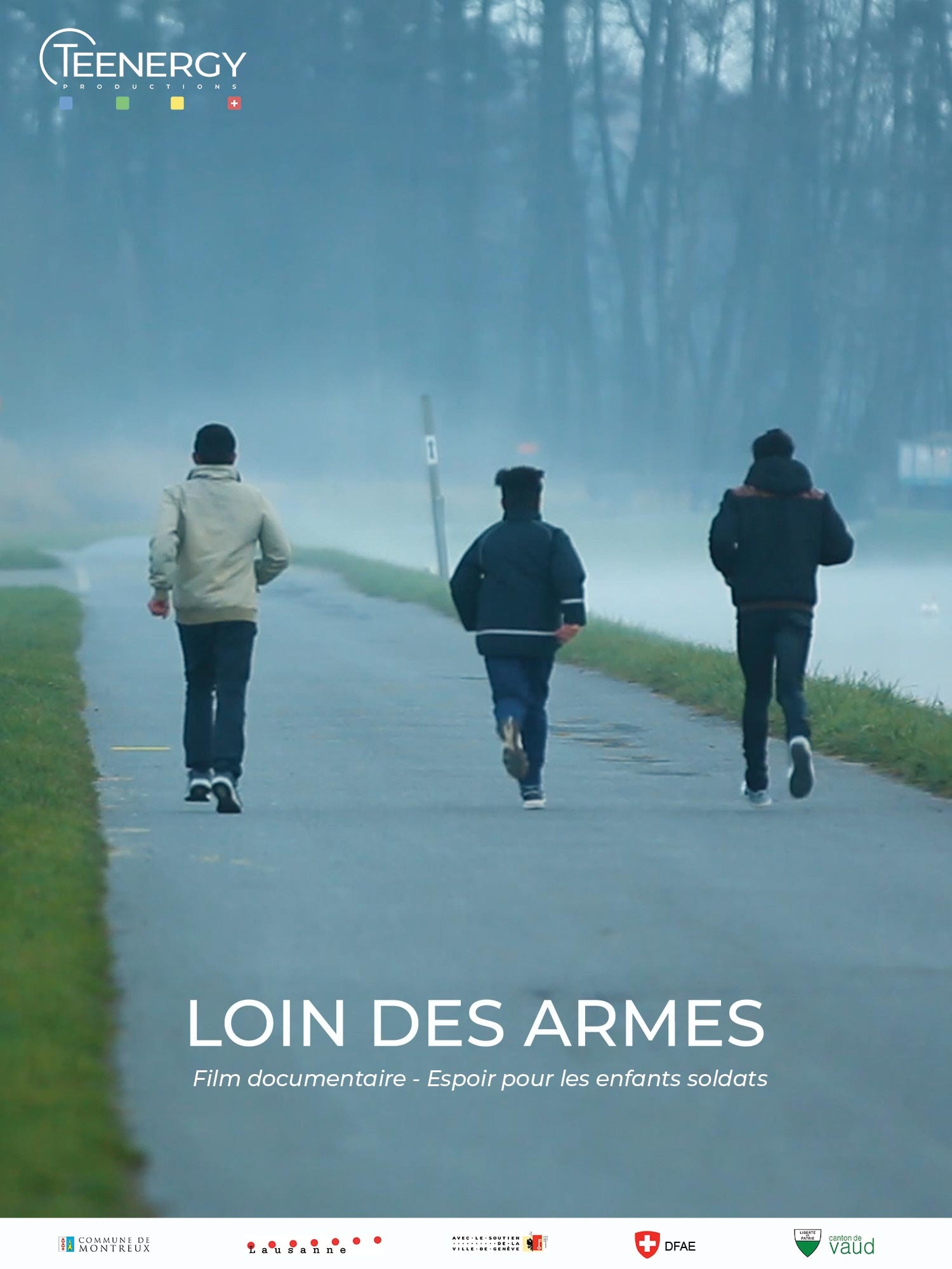La longévité et l’étendue territoriale du conflit armé alimentent une culture de la violence, intégrée depuis plus d’un demi-siècle au quotidien de la plupart de la population.
Le droit international
Le droit international reconnait les enfants comme population vulnérable lors de conflits armés, indépendamment du rôle qu’ils et elles puissent avoir. Le Protocole I interdit le recrutement de personnes âgées de moins de quinze ans dans l’Armée, puis exige des protections spécifiques pour les enfants victimes ou participant aux conflits. Le Protocole II interdit toute participation directe ou indirecte des enfants dans les conflits nationaux.
Le droit national
Le cadre juridique de la Colombie contient des droits relatifs aux enfants adaptés au contexte du conflit armé. Malgré la quantité d’outils juridiques et les progrès réalisés en matière des droits de l’enfance ces dernières décennies, les violations des droits des enfants en Colombie restent monnaie courante. Même en restreignant notre intérêt aux cas des enfants soldats, les atteintes aux droits de l’enfance commencent avant le recrutement. Selon l’UNICEF, la plupart des enfants rejoignent des groupes armés non gouvernementaux non par menace directe, mais à cause de violences domestiques ; l’abandon par leur famille ; la mort de membres de la famille dans le cadre conflit armé ; le manque d’opportunités d’éducation et d’emploi dans leur région.
Les enfants soldats dans le conflit armé en Colombie
Deux générations de Colombien.ne.s naissent et grandissent dans ce contexte de violence généralisée. Dans les zones d’intervention directe des groupes armés, à savoir les zones rurales et pauvres, l’Etat n’est pas présent et l’économie
est liée aux activités des groupes armées. Autrement dit, les perspectives d’avenir passent par les groupes armés, que ce soit guérilla ou paramilitaire. De plus, ces départements correspondent aux endroits où des minorités comme les indigènes et les Afro-Colombien.ne.s sont le plus représenté.e.s, attaquant gravement les possibilités de ces groupes à maintenir et à transmettre leur culture, à cause des déplacements forcés et du recrutement.
Caractéristiques des enfants soldats
Il est estimé qu’en Colombie, dix-huit mille enfants ont combattu dans les groupes armés non-gouvernementaux entre 2008 et 2012. Il faut noter que la frange de la population la plus pauvre (12,6%) est surreprésentée parmi les enfants soldats (66%). L’âge moyen des enfants au moment du recrutement est de 12,1 ans.
Programmes actuels destinés aux enfants soldats
Le cadre de justice transitoire prévoit que les enfants soldats âgés de moins de quinze ans soient traités comme des victimes du conflit armé ; ceux et celles entre seize et dix-huit ans auront droit à un pardon spécial pour la rébellion, excepté s’ils et elles ont commis des crimes de guerre.
Plusieurs programmes visant à l’aide aux enfants soldats et leur réinsertion existent depuis 1999, mais font malheureusement preuve d’importantes lacunes.
Conclusion
La comparaison de sources (associatives, onusiennes, juridiques, entretiens informels) nous permet de dire que les programmes de réinsertion des enfants soldats démobilisés en Colombie ne garantissent pas la réussite de leur réincorporation. Bien que plusieurs institutions gouvernementales assurent l’accès aux droits au logement, à la nutrition, à la santé, à l’éducation, à la famille et à la liberté d’expression, de sévères lacunes semblent persister au
niveau de l’appui et du suivi psychosocial des enfants. Ceci est préoccupant au vu de l’envergure du conflit armé en Colombie, car il façonne le quotidien du pays depuis trois générations. Pour pouvoir casser les spirales de violence, il est en partie nécessaire que les enfants puissent se projeter comme citoyens, avec des droits et des devoirs, dans un pays qui leur offre de meilleures opportunités d’existence.
L’application numérique de «Loin des armes» espère, dans sa phase pilote, pouvoir aider quelques enfants soldats démobilisés à reconstruire leur identité. Ce faisant, le projet comblerait une lacune et agirait en complémentarité avec les institutions gouvernementales en charge de ces enfants, en accord avec les droits de l’enfance.


An educational documentary film, immersing us in this reality by highlighting existing solutions.
A remote aid web application for child soldiers.
A non-profit foundation for the protection of children’s rights in armed conflict.
The idea of Away from guns came in 2015, after meeting Junior, a demobilized child soldier from the Democratic Republic of Congo. Made up of testimonies from demobilized former child soldiers from several continents, this film also represents local youth who have committed themselves to the cause, as well as experts on the subject.
Its dissemination and the momentum generated among people and organizations sensitized by the theme, as well as our meetings with several former child soldier, pushed us to extend our commitment through the development of a web application, in collaboration with actions and NGOs active with them.
Indeed, a medical-psycho-social follow-up during demobilization, as well as the lack of people trained locally, are elements that are neglected. We saw an opportunity here where the digital could play an important role.
An application can put doctors, psychologists and other professionals in touch with demobilized child soldiers. It is also an opportunity for expatriate doctors to provide remote assistance and, for those on site, to be trained more.
A secure prototype was tested and a pilot programme is planned first in Colombia, then in Syria and Africa. For now, we have designed the use of the application as follows :
1. Accompaniment by a social educator
2. Building of a relationship between the child and the doctor.
3. Diagnosis of the child for referral and reintegration
Several actions are underway to make this project known:
1st of septembre 2018, 5-7 pm: Opening of the Montreux Ladies Open 2018 at the Club de tennis de Montreux in Territet.
Live unforgettable moments in the company of surprise personalities, see an unusual exhibition match and get to know “Away from guns”
From 1 to 9 September 2018 : Village of the Montreux Ladies OpenTo learn more about Colombia, the opportunities to get involved as a health professional, to participate by donating sneakers, tablets and smartphones for the pilot project in Colombia and many other surprises
October 3, 2018 at 6pm : Grütli in Geneva,screening of the film « Away from guns » and panel discussion in the framework of Democracy Week https://www.ge.ch/dossier/semaine-democratie-2018/programme-semaine-democratie-2018
February 2019 : Happenings on the occasion of the International Day of Child Soldiers and to continue supporting the deployment of the Away from guns application in Colombia, the Middle East and Africa.

The longevity and territorial extent of the armed conflict fuel a culture of violence that has been integrated into the daily lives of most of the population for more than a half century.
In order to support the deployment of an application, a non-profit association was created in the early 2017, which will eventually become a foundation. It is dedicated to the prevention of recruitment, demobilization and social rehabilitation of children associated with armed conflict. Its actions and commitments against the exploitation of child soldiers are deployed on three levels :
1. Reinforce the visibility of the problem in order to enable a better understanding of the situation and to legitimize the release of sufficient means.
2. Increase the efficiency and the coordination of existing actions, in particular with the help of the new technologies.
3. Develop a collective and multidisciplinary approach, by linking forces (State, NGO, private) and skills (medical, legal, technical and logistical), in order to ensure efficient use of the capacities invested in the protection of child soldiers.
Hassan Lakhdar, president, Teenergy director
Jonathan Bory, secretary, jurist
Anne Lakhdar, cashier, Teenergy co-director
Hans Ulrich Gerber, IFOR-MIR
Junior Nzita Nsuami, former child soldier from Congo
Claudio Deuel, former youth delegate of the city of Geneva

Do you have a tablet, a smartphone or sneakers that you no longer need? Bring them back to the Away from guns at the Montreux Ladies Open or to the office to support our actions in Colombia!
Take part in the Gala on February 9th 2019, talk about it around you, come and meet us during the Montreux Ladies Open ! Together we can change this world.


Do you want to be active in change and willing to give a few hours of your time ? Come and talk about it at the Away from guns booth during the Montreux Ladies Open or contact us on 021 961 29 53 to talk about it !
Loin des armes | Rue du Temple 11 | 1820 Montreux, Suisse | +41 (0) 21 921 29 53 | info@teenergy.ch